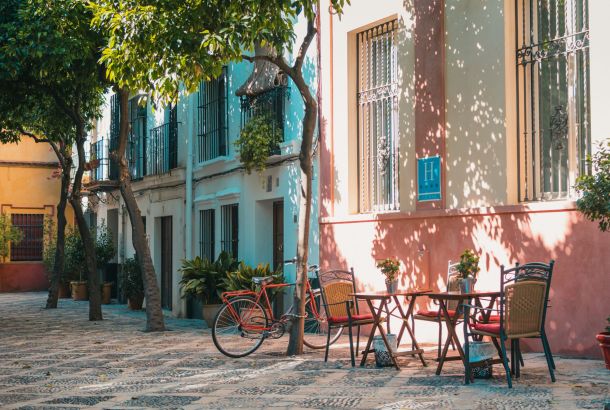Why is everybody obsessed with minimalism?

When I think of a minimalist home, I picture the stark, empty multi-million-dollar celebrity houses plastered over magazines. Soulless empty rooms and plain white walls don’t correspond with my personal taste. What’s more, the conflation of minimalism with wealth cultivates the idea that it is a lifestyle available only to the richest in our society; but, this pastiche of minimalism isn’t what the movement is about at its roots. In today’s understanding, the minimalist lifestyle has been reinterpreted for its visual stereotypes forgetting its practices.
Minimalism isn’t a new concept, but as a lifestyle trend, it has seen a surge in popularity over the past decade. From the influx of social media interior design channels to the time spent at home during the pandemic, there are many reasons that people are choosing to reevaluate their living situation. Nowadays, minimalism is applied to clothing, decor, cooking, and even parenting. It’s become ubiquitous online, but for some, it has lost its original meaning.
The minimalist lifestyle promotes a simple way of living. The group The Minimalists (owners of the widely successful self-titled podcast and Netflix show) reject the assumption that minimalism is about restricting your life. Instead, they define minimalism as ‘A tool to rid yourself of life’s excess in favour of focusing on what’s important.’ The idea is that by being more considered in our decision-making, we can learn to examine what we need and what we don’t. While other lifestyle movements promote the acquisition of objects as a solution to problems, minimalism suggests that we can turn inward.
Part of the draw to minimalist philosophy is the idea that it can benefit your well-being. Forbes cites research showing how a minimalist mindset can impact your mental state in several ways. Living with less clutter is proven to relieve anxiety, leaving our brains less distracted and improving productivity. Minimalism also encourages us to think about how we spend money and what we really need to spend money on, helping to avoid some financial stresses. It also prioritises experiences over possessions and encourages people to think about how they want to spend their time. With a minimalist attitude comes the ability to find beauty in everyday life whilst being less impulsive and more intentional. The principles of mindfulness intertwine with those of minimalism – calm, focus, and attention.
When minimalism is reduced to an aesthetic, it risks making life boring. You might have heard the concern around ‘beige babies’, the name given to the influencer children restricted to playing in bland monochrome rooms with plain toys. Children not being exposed to colour, patterns, or variation in their early years has understandably prompted many to question why everyone is suddenly so obsessed with neutral colour palettes.
There’s also the rise of bland corporate style seen in everything from increasingly simple logos to the style of popular book covers. Even urban design is becoming increasingly simple, from the death of old ornate streetlamps to the plain design of public benches. For some, this version of minimalism signals a lack of appreciation for artistic value. But being more minimalist in our personal lives doesn’t mean we have to reject detail and anything that’s not purely utilitarian. Modern minimalism is associated with boringness, but that’s not the right message. You don’t have to get rid of your favourite decorations in your room – but maybe think more about the value future purchases will bring you. And you don’t have to limit yourself to neutrals and simple patterns just because that’s what social media thinks you should do.
The minimalist mindset offers a response to the rampant consumerism of today’s society. Though any lifestyle trend will inevitably be capitalised on, there’s no need to replace your possessions and buy a new wardrobe to be a minimalist. Minimalism should call for us to be more sustainable in our shopping habits. Prioritising simplicity is about avoiding micro-trends and embracing stuff that we need, or what is special and sentimental to us. Being minimalist should be accessible to the average person, not a lifestyle available only to those with a large disposable income.
If we’re to take anything from minimalism, it’s that we can be content with simplicity and encourage mindful consumption. As students, this is a philosophy that most of us know all too well. Incorporating more intentionality and consideration into a busy life can be valuable to those with a tendency to get swept up in the rush. Being minimalist requires more thought – the consideration of who and what you surround yourself with. It can be applied to work, home, and relationships.
You can embrace minimalism in many ways. Maybe it’s solidifying friendships with people we barely see and learning to let go of others. It could be the push to distance ourselves from technology or getting rid of a social media app that isn’t benefiting us. Perhaps in planning our time more to avoid becoming overwhelmed by commitments, you will find more time for yourself. Or even just thinking about your weekly shop and getting good quality food rather than doing lots of impulse buys.
We can bring minimalist principles into a life that doesn’t adhere to its aesthetic values. In avoiding the appropriation of its core values by influencers and appreciating the peace a minimalist lifestyle can offer us, you can’t go too far wrong. By being a little more minimalist and a little less materialist, we can change what we value, spending less energy, money, and time on what we don’t.







